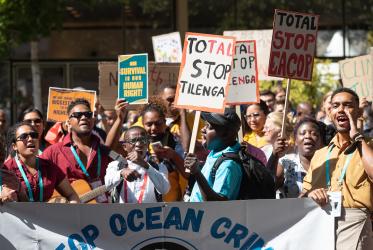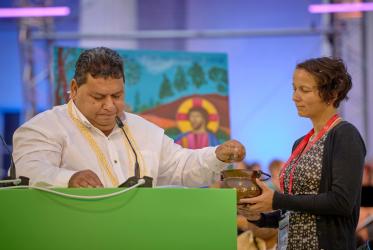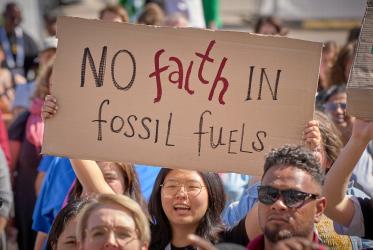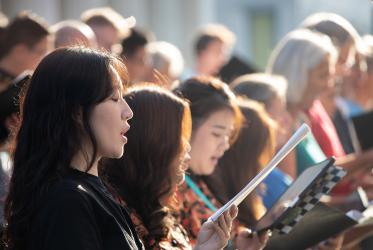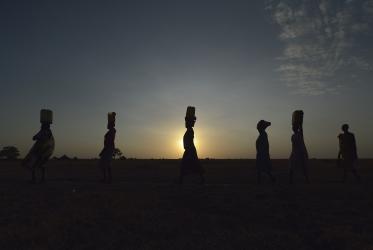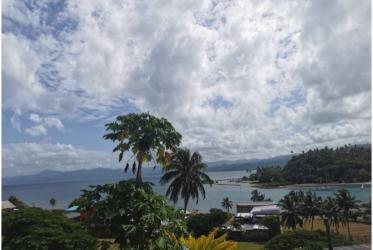Displaying 81 - 100 of 158
19 September 2022
Ukraine: Responding to humanitarian need
08 September 2022
The earth is the LORD's… and the Lord is claiming it back
07 September 2022
Una defensa multiconfesional del clima: no queda mucho tiempo
07 September 2022
Multifaith advocacy for the climate: Not really much time left
04 September 2022
Los jóvenes exigen justicia climática
04 September 2022
Youth demand climate justice
03 September 2022
El cuidado de la creación: décadas de promoción ecuménica
02 September 2022
God’s Creation is celebrated in a gathering of waters
01 September 2022
Care for Creation: Decades of ecumenical advocacy
01 September 2022
Called to Transformation - Ecumenical Diakonia
09 June 2022



